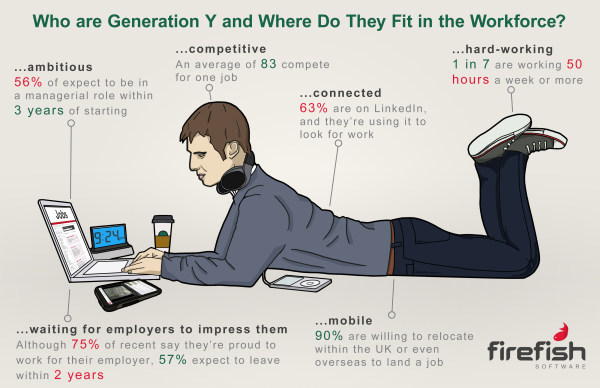
Sometimes referred to as the Echo Boom, Generation Y is made up of the children of the Baby Boom. They're a large group - almost as large as their parent's generation - and they live and work in unique ways. Born between 1980 and the late 1990s, Generation Y (Millenials) have a unique approach to the world around them and to the way that they work. Recruiting members of this workforce requires adjustments to corporate real estate strategy. Here's why:
Corporate Real Estate Strategy in One Word: Urban
Generation Y likes cities. Companies that want to attract Gen Y workers would do well to abandon their suburban campuses and move back into urban cores. This might even mean choosing spaces in less-than-desirable areas - like Google's location in San Francisco's emerging mid-Market district instead of in neat, clean and upscale Silicon Valley.
One of the reasons Generation Y likes urban locations so much is that they generally aren't as attracted to cars as Generation X or the Baby Boom. Since they don't drive, the problems and costs associated with urban parking go away. Also, they benefit from the ease of walking, biking or taking public transportation that a city provides. 82% of Generation Y cares about being close to work, and they're the first generation since the Matures to have a majority that care about having access to convenient public transportation.
Gen Y Workplace Preferences
Generation Y has spent their entire life in a team of one sort or another. Whether in class projects or team sports, Millenials prefer collaboration. What this means in the workplace is that Gen Y thrives in a team-oriented atmosphere. Cubicles or even once-prestigious private offices aren't as important to Gen Y as to other workers. What they want and need is space to work collaboratively. This means that offices with fewer cubes and offices and more collaborative team space are often best suited for Gen Y.
Millennials also care about amenities. 46% of them have excercised vigorously in the last 24 hours. Furthermore, for as long as they've been old enough to drink coffee, they've had a Starbucks or other café right nearby. As such, a corporate real estate strategy that focuses on common areas instead of worker-specific amenities is likely to be more Gen Y-friendly.
Leasing for Gen Y
The traditional corporate real estate strategy of signing a long-term lease and building a location with ties to the community might not work any more. Generation Y is uniquely nomadic. They're used to communicating online, and they have personal networks that span the nation and globe. This means that they can be at home just about anywhere (as long as it's urban). At the same time, they also have a much more relaxed view of the role of work in their lives than older generations.
All of this adds up to a talent pool that is much more geographically flexible than before. If Gen Yers want to move for a new career opportunity, they will. This means that a long-term lease in the wrong place could lock your company in a location that ends up with a talent shortage, or one that poses recruiting challenges in the future. As such, a flexible corporate real estate strategy that adapts to unique Gen Y workforce preferences is the best way to achieve recruitment goals.
Article Sources:Starbucks Company Timeline50 Facts About Millenials
Image Sources:InfographicHubspot Headquarters








